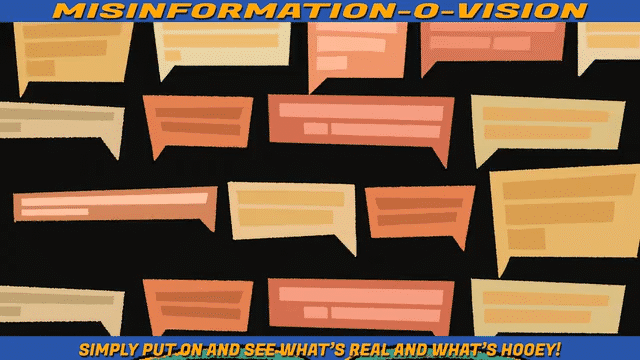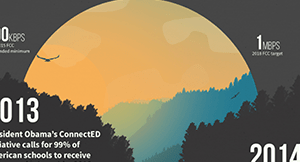5 Things to Keep in Mind When You Suspect Misinformation
BY Lindsey Canny
When the internet was invented, there was speculation that there would be no more need for formal education since the wealth of human knowledge would be at everyone’s fingertips.
How awfully, devastatingly wrong we were. Yes, we got knowledge, but we also got heaps of misinformation making mayhem of what’s true and what isn’t.
Keep yourself in the know with these five ground rules to good information.
1: Social media isn’t a source
Social media platforms should never be used as sources of information. Anyone who is credible will be publishing through official means, and everyone else isn’t an expert. Imagine your doctor giving you a diagnosis because he saw a video about your symptoms on TikTok. It’s still harmful when friends and family claim knowledge for the same reason. “I saw it on Facebook” is always going to be a red flag.Calm the chaos:
- Seek out or confirm information where experts find their official facts and data, such as industry journals, university studies, or impartial research.
2: Don’t pass along “facts” like telephone
The spread of misinformation was understandable prior to the internet because word of mouth was how anyone learned something new without spending hours in the library. The problem with the internet, however, is that people still aren’t taking time or lack the skills to read closely for factual information. A blatantly incorrect word-of-mouth “fact” can suddenly reach millions of people in seconds. Know what the rapid-fire reach of an idea is called? A meme. On that note, memes aren’t sources either.Hang up the phone:
- Do the work and double-check information, especially before trying to claim it as a fact.
- Take anything learned secondhand with a giant grain of salt, then go look it up.
3: Don’t let the dodgers win
Not those Dodgers. I’m talking about misinformants who intentionally dodge questions about where their information came from or what their expertise is (because they have none). When someone has true expertise, they tend to be forthcoming about their level of education, their professional experience, and what sources they are using to corroborate their findings. If a source gets defensive or starts questioning everyone else’s motives, they’re likely hiding something.Fix the game:
- Look for a source’s credentials. Any reputable site or publication will have this information readily available.
- If a source is using phrases like “studies show” or “scientists claim," make sure they’re revealing the studies they found or who the scientists are (if they even exist!).
- Keep calling them out. Even better, start reporting them for spreading misinformation. Most social media sites have a “report” option dedicated to removing false information.
4: Inflexibility begets ignorance
Having conviction in personal beliefs is admirable—never wavering in them even in the face of contradicting proof or evidence is ignorance. When all of the signs and studies point to a person being wrong, a mark of growth and intelligence is being able to alter judgments, perceptions, or beliefs based on acquisition of facts or opposing viewpoints. It is something to strive for.Flex your flexibility:
- Don’t waste energy arguing with opponents in the comments. It will only help fan the flames.
- Someone changing their mind isn’t “selling out” or “flip-flopping.” They simply learned more information and their previous assumptions were wrong. That’s all they need to say.
5: Real research goes further than Google
There is probably no more misused phrase in misinformation than “I’ve done my research”. Poring over articles to learn more about a subject is certainly educational, but it is not true academic research. Real research is drawing logical conclusions through compiling credible sources, thinking critically, and reflecting. It’s also not a solo activity: research must have a community of experts to corroborate the findings and make sure the conclusions are sound.Get the real deal:
- When looking up information on a new topic, get educated through a variety of credible source materials. But keep in mind, this alone does not make a person an expert.
- Look at what the professional community of a source’s author has to say about their findings. If research was conducted improperly or without review, the community will be vocal with their warnings.
- A person is only an expert on a subject when they have higher education degrees and longstanding professional experience in that given field.
- Practical experience also counts as expertise, but with a caveat: the experience must be sustained and honed over thousands of hours, not just a day or two.
Keeping misinformation at bay is such hard work that it will always be easier to let it go and hope for the best. The ripples of misinformation add up fast. The impact is much worse than a couple small factual errors. What else is there to lose? Our collective credibility, integrity, and base of knowledge.
The stakes are high. Staying vigilant matters.
Follow-up resource: Media literacy tips and tricks for everyone
Learn to spot the characteristics of misinformation in the media.WHAT'S NEXT FOR YOUR EDTECH? The right combo of tools & support retains staff and serves students better. We'd love to help. Visit skyward.com/get-started to learn more.

|
Lindsey Canny Edtech Thought Leader |
Lindsey Canny is a marketing copywriter for Skyward, Inc., a school administration software provider based in Stevens Point, WI. Prior to working at Skyward, Lindsey spent eight years teaching 9th and 10th grade English within the Stevens Point community. Outside of work she enjoys reading books and spending time with her husband and cat.




